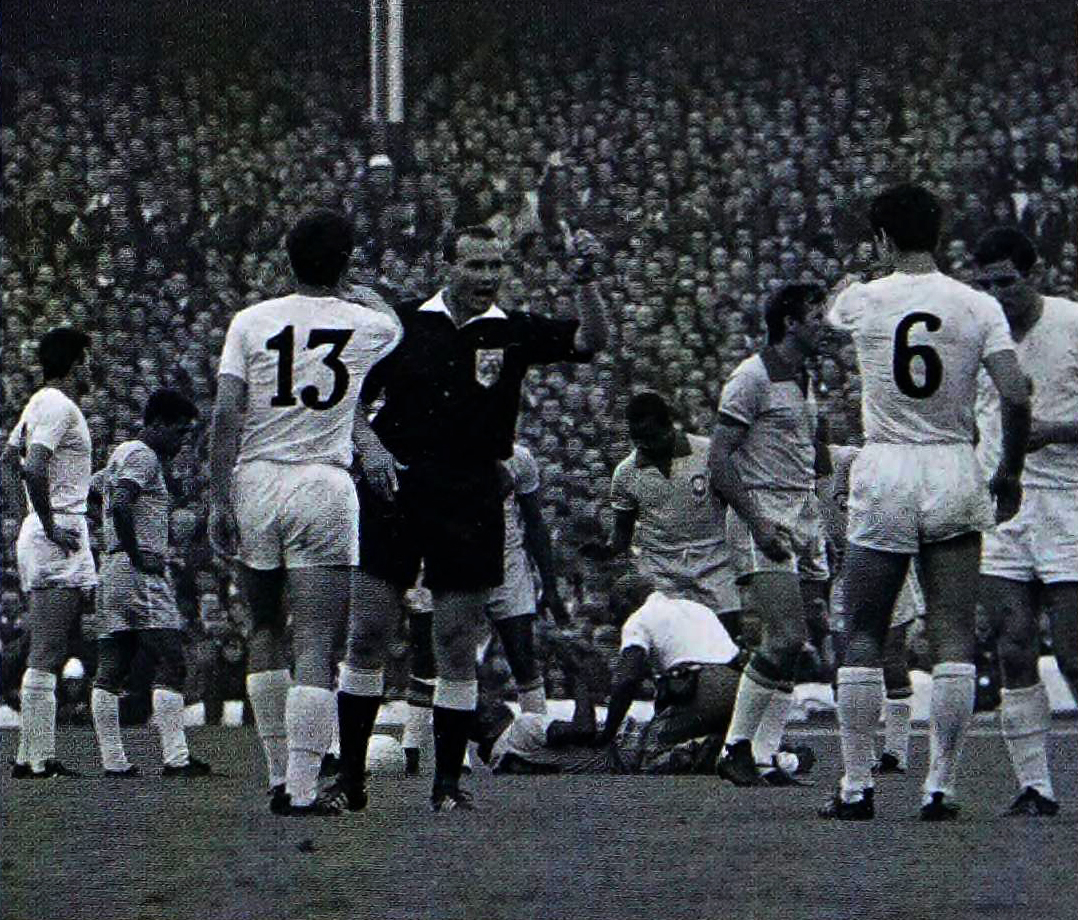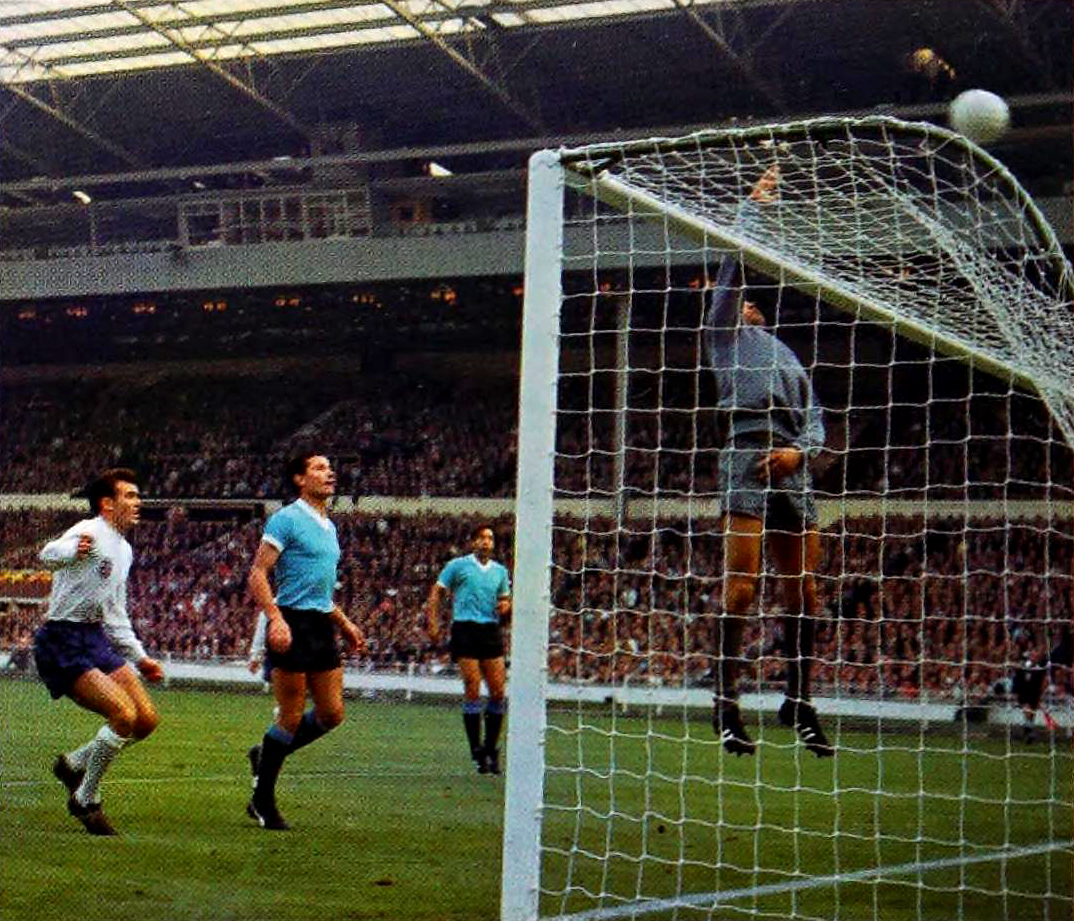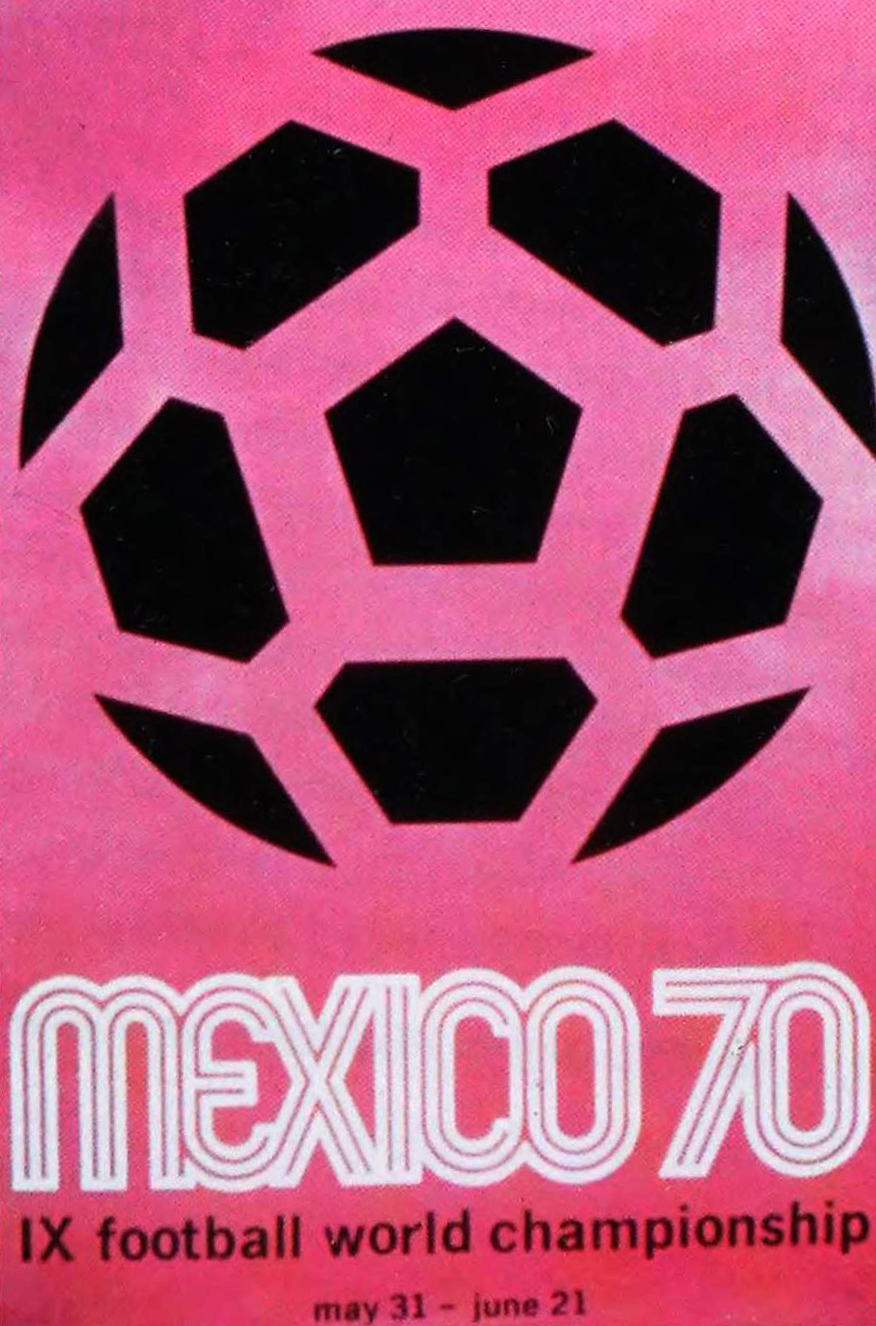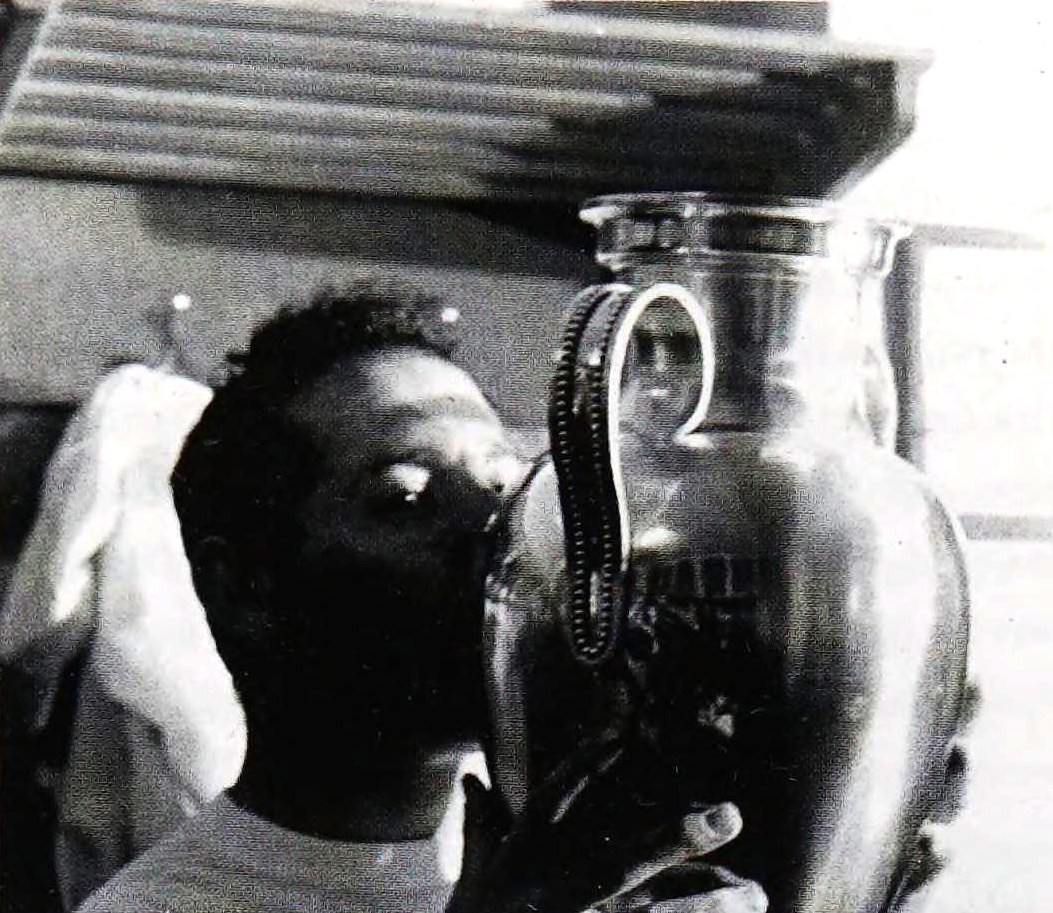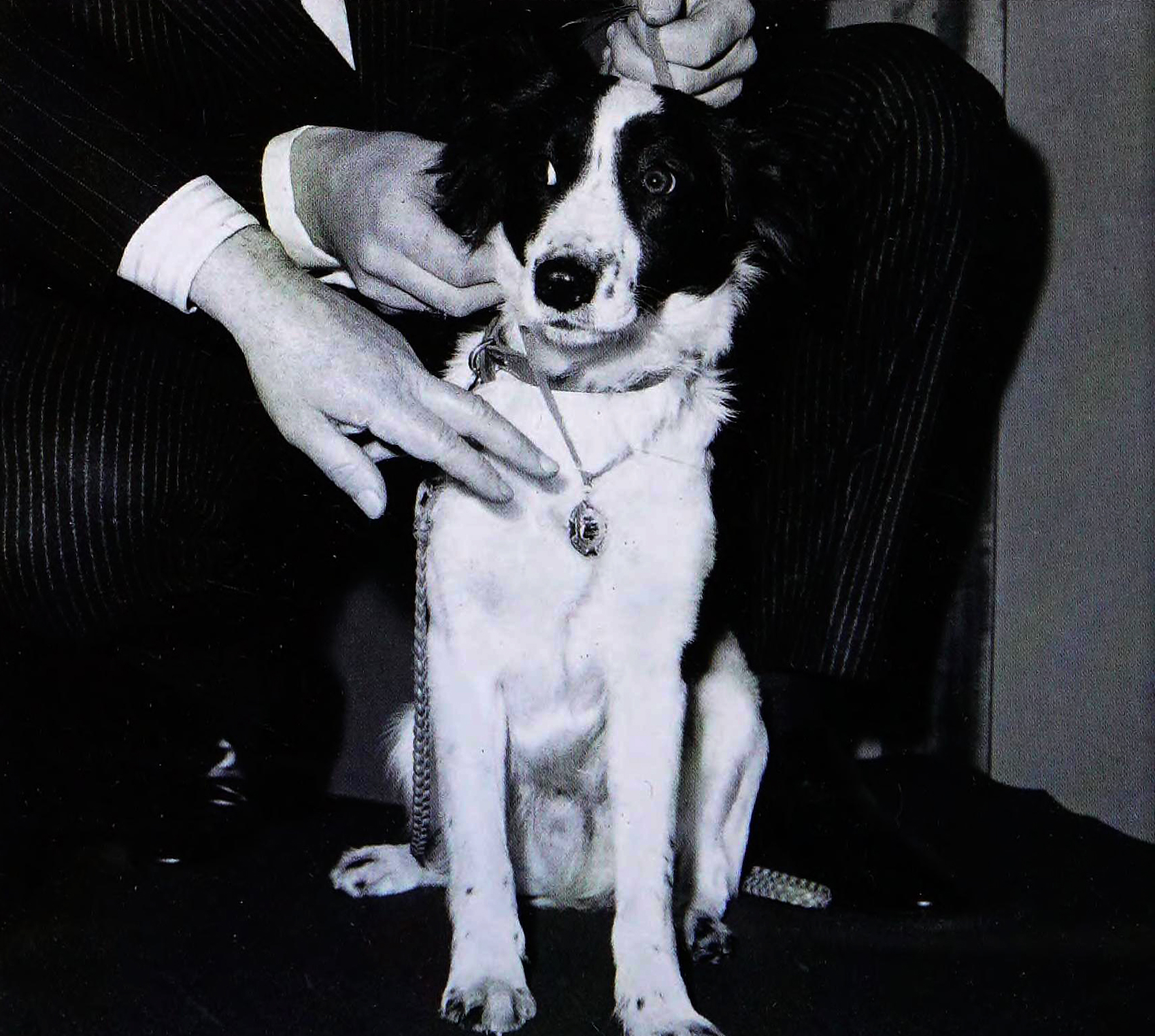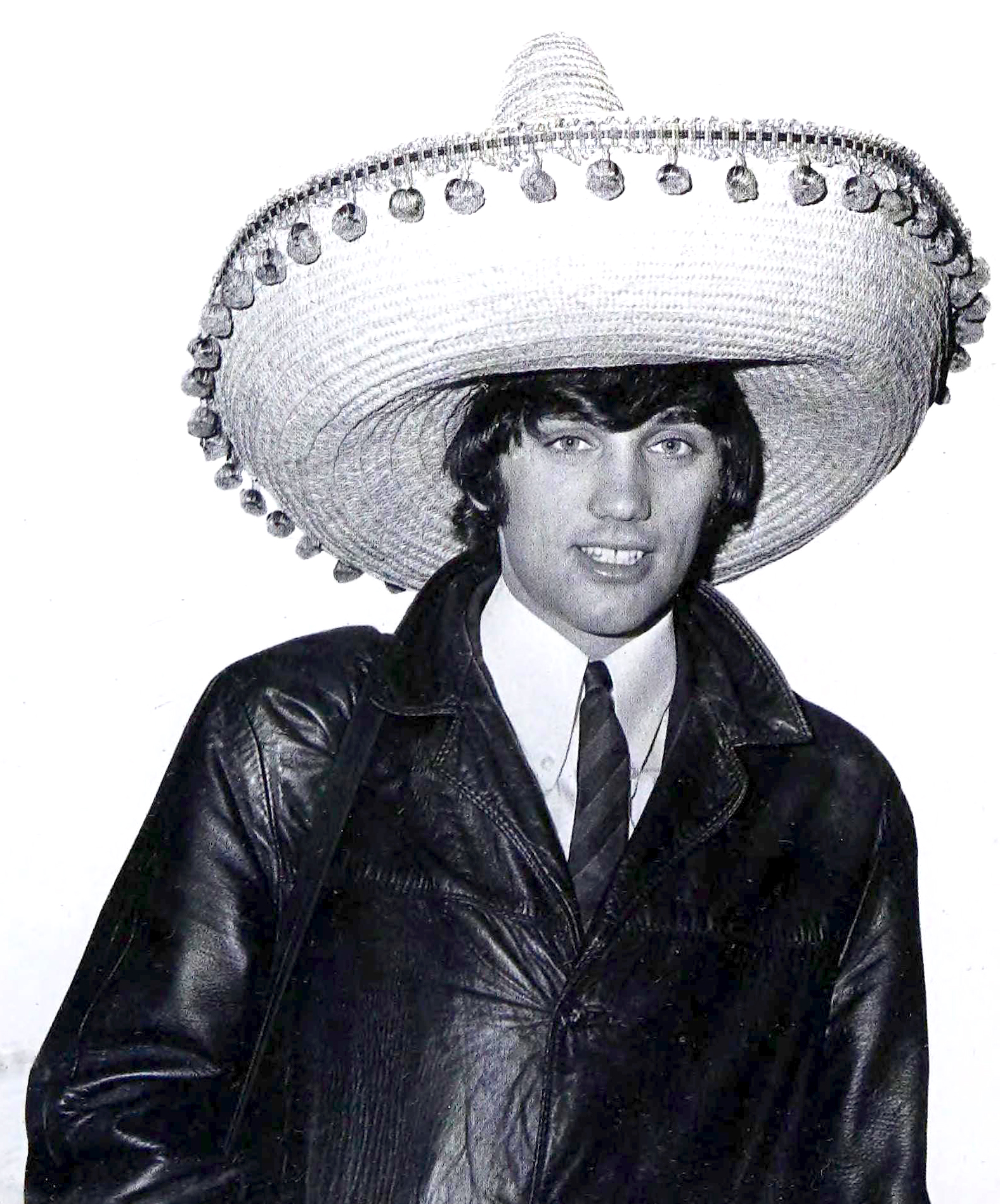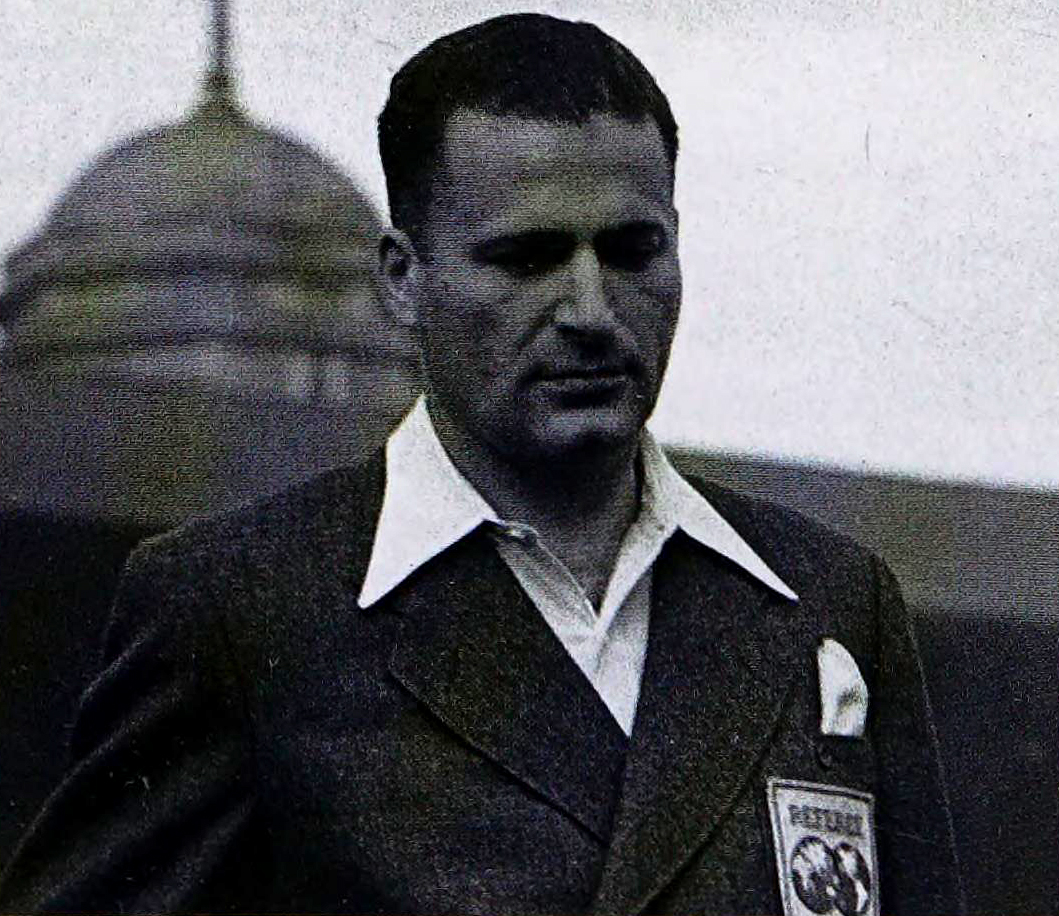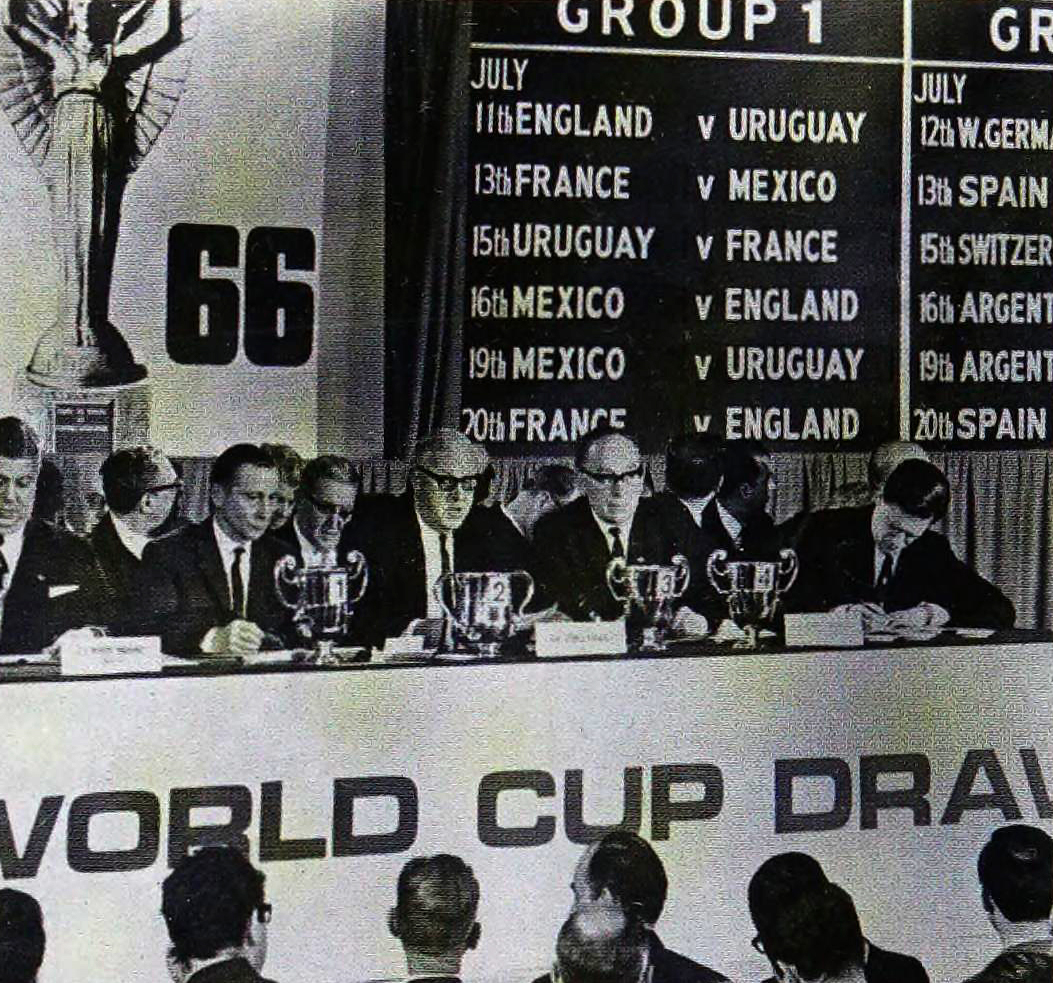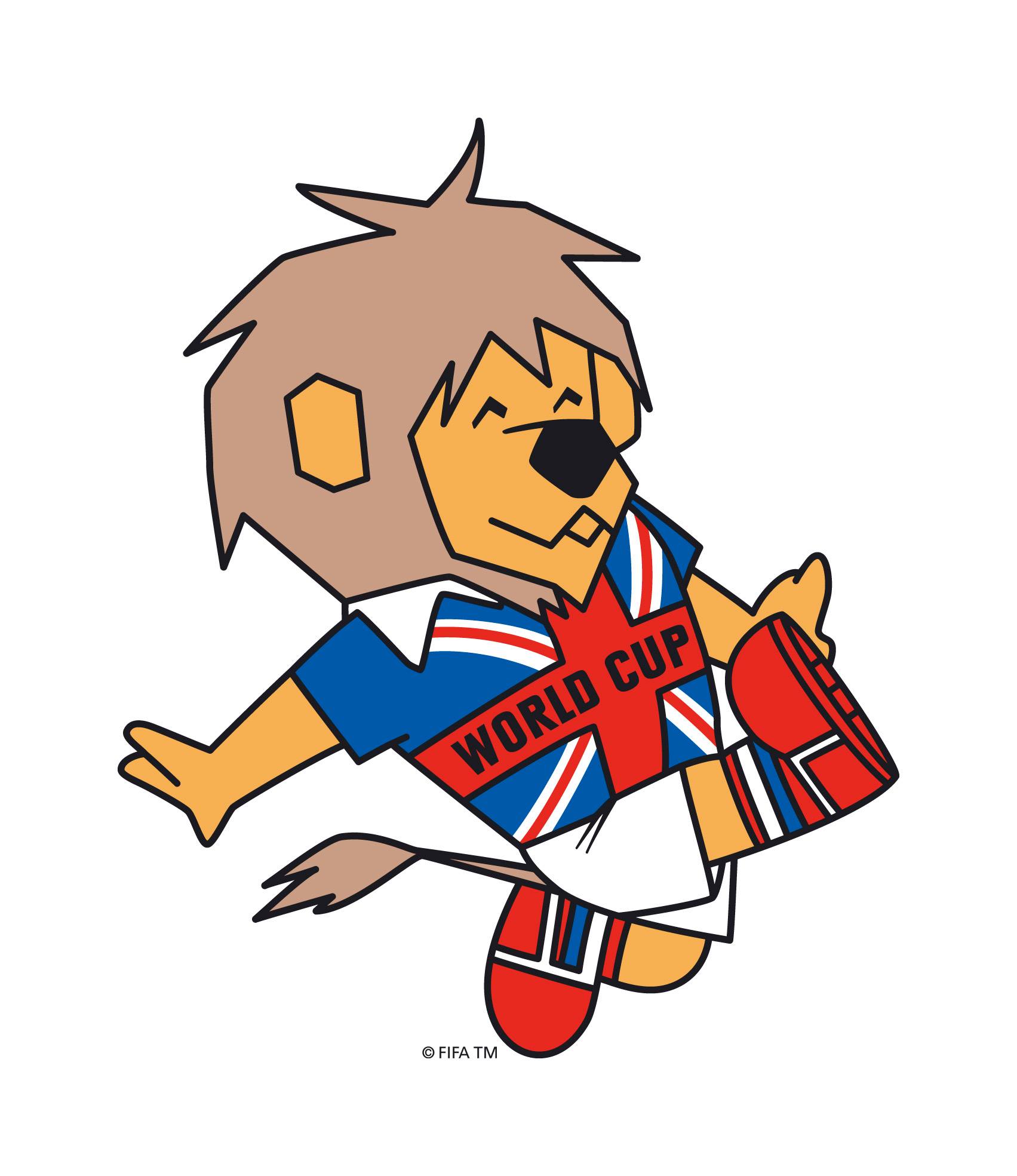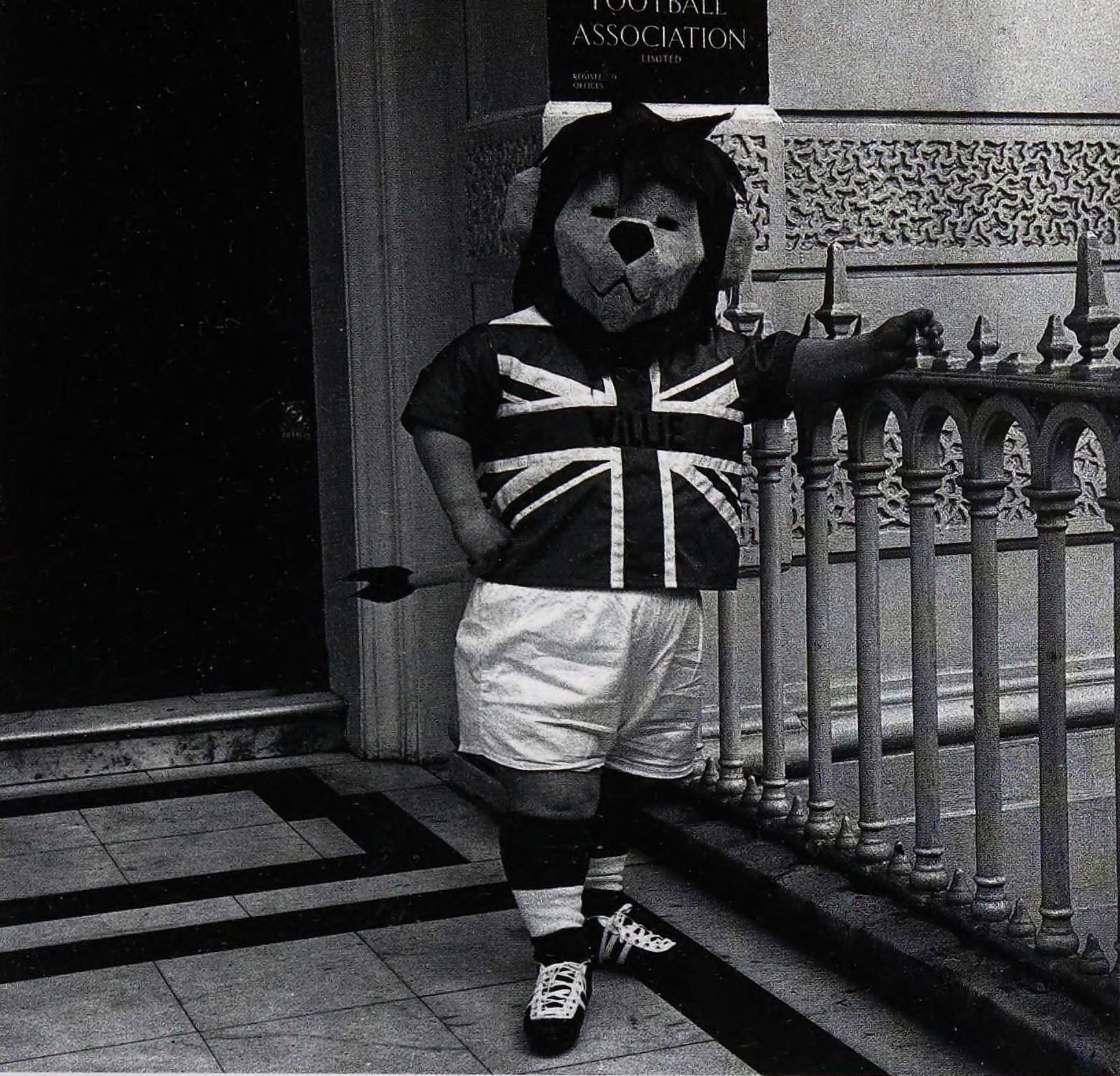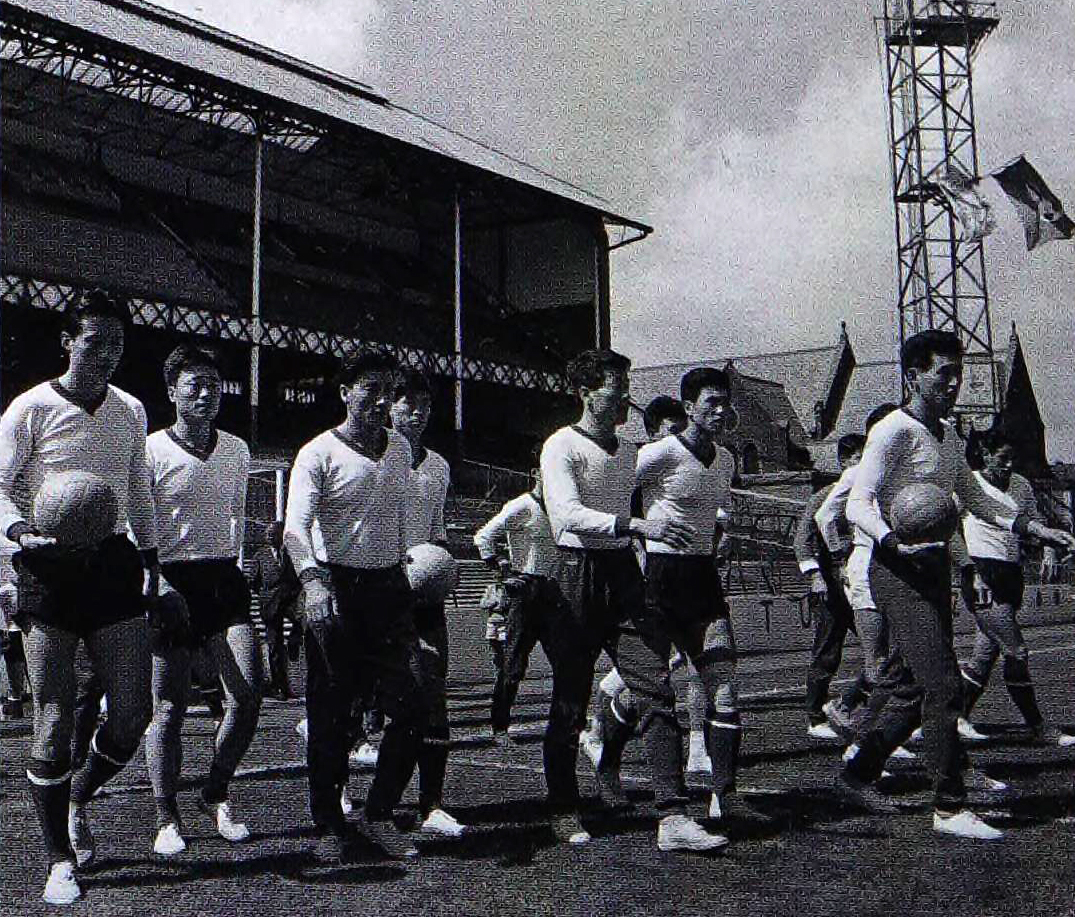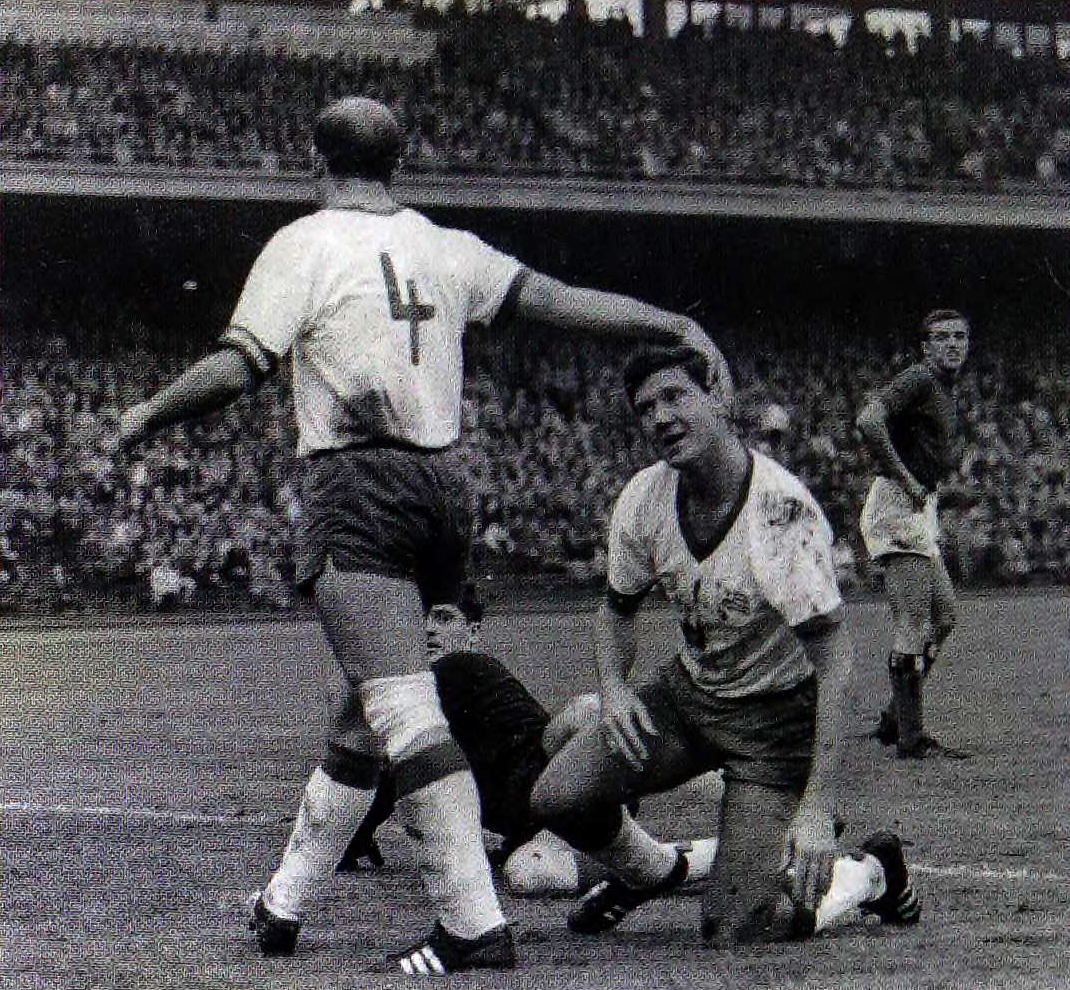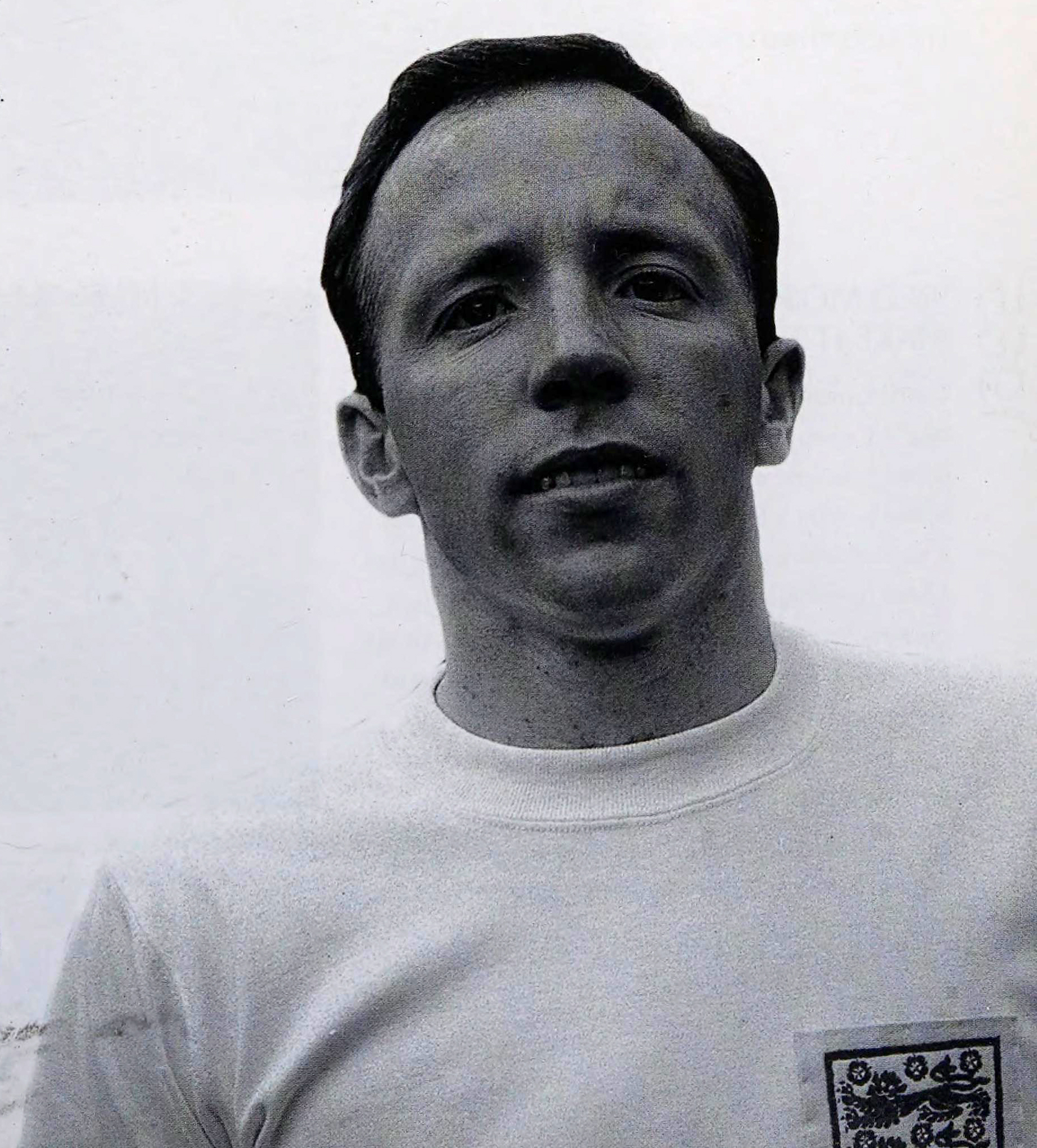2023-03-09
Nr. 421
TELEVISION MAKES HISTORY (1966)
England’s match against Uruguay in front of 87,000 World Cup fans at Wembley Stadium on 11 July 1966 marked the start of a history-making tournament. It was the year the World Cup trophy was stolen; it was the yeai that England won the title for the first and so far only time; and it was the first time that television coverage featured action-replays. This revolutionary technique was the brainchild of Bryan Cowgill, the head of BBC Sport who was responsible for bringing sporting programmes Grandstand and Match of the Day to a grateful nation. Unfortunately, there were no goal replays in that England match as it ended 0-0.
The new technology enhanced the game’s TV appeal though debate still rages about whether replays should be used during the game.
2023-03-08
Nr. 420
FIFA PLANS FOR THE FUTURE (1966)
The top administrators of world soccer sat around a table to decide the future of the World Cup for the next 16 years. The main item on the agenda of the FIFA Congress was to pick venues for the 1970, 1974, 1978 and 1982 competitions. With the sport becoming more global dozens of countries had expressed an interest in staging a World Cup tournament, but were to be disappointed. In an era prior to mass air travel, FIFA decided to continue alternating between the continents with strong soccer power bases – Europe and South America. Mexico was picked for 1970, West Germany for 1974, Argentina for 1978 and Spain for 1982.
FIFA’s long-term plan ensured that the World Cup would not become an event always held in Europe but one which would reflect its global reach.
2023-03-07
Nr. 419
REAL MADRID’S EUROPEAN CUP DOMINANCE ENDS (1966)
Real Madrid’s decision in 1953 to begin signing international stars set the foundation for the club’s success in both domestic and European competition. They won La Liga for the first time in 1954 and on many occasions after. This form was also transferred to European Cup competitions and an outstanding run between 1956 and 1960 saw the club win the European Cup five times, earning them the right to wear the UEFA Badge of Honour. Real’s 2-1 win over Partizan Belgrade won them the competition for a sixth time in 1966, a feat they were not to achieve again for another 22 years.
Real Madrid captain Francisco Gento kisses the European Cup after his team won it for the sixth time. And then began the drought.
2023-03-06
Nr. 418
WORLD CUP STOLEN (1966)
On 20 March 1966 former soldier Edward Bletchley was jailed for the theft of the gold 12-inch World Cup Jules Rimet Trophy, but he claimed he was just the middleman for the subsequent £15,000 ransom demand issued to the Football Association. No one witnessed the theft of the £30,000 trophy from the Methodist Central Hall, Westminster, where it was on display with a ‘Sports with Stamps’ display worth £3 million. The 20 March heist was timed to coincide with a church service in another part of the building, when guards had gane missing.
Bletchley was arrested when he went to pick up the ransom money and, while he claimed he didn’t know where the trophy was, it’s said he did a deal with police for information about the trophy’s whereabouts in return for a prison visit from a lady friend. However, in the end it was four-year-old mongrel Pickles who sniffed out the statuette, wrapped in newspaper and lying in the street outside owner David Corbett’s home in South Norwood. The trophy had been missing for just over a week.
Pickles who discovered the lost trophy under a holly bush outside his owner’s house, wearing the silver medal presented to him by the National Canine League.
2023-03-03
Nr. 417
‘EL BEATLE’ IS BORN (1966)
It was the night that a legend was born. Manchester United had travelled to Lisbon on 9 March with a meticulous game-plan designed to protect their 3-2 first-leg lead against Benfica in the European Cup quarter final. However, within ten minutes a carefree George Best had put United 2-0 up, inspiring Manchester United to go on to win 5-1 – the first defeat Benfica had ever suffered in the European Cup at the Stadium of Light.
With such a result, United boss Sir Matt Busby could not be too upset that his carefully laid plans were ripped up by his mercurial young star. He said wryly afterwards, «Our plan was to be cautious, but somebody must have stuffed cotton wool in George’s ears.» The next day the newspapers featured Best pictured in a giant sombrero captioned ‘El Beatle’ – a tag taken up by the British press who fell over themselves to launch him as a style and sporting icon.
Six days atter the Benfica match, Best added fuel to the media feeding frenzy when he and close Manchester City friend Mike Summerbee opened Edwardia, a men’s fashion boutique in Sale. Such was Best’s sex appeal that the opening of the shop drew 400 fans, mainly schoolgirls, who nearly broke the shop window in their eagerness to catch a glimpse of their hero. Best’s style and huge public profile led to a modelling contract and a full rock ‘n’ roll way of life.
He became legendary for his partying, but it was a lifestyle that was to quickly undermine his sporting career and ultimately his health.
Best’s superlative performances coupled with his female following brought him a huge wave of press attention.
2023-03-02
Nr. 416
REFEREE ORDERS WALK OFF (1966)
Leo Horn was not a referee to trifle with. He was a judo black belt and during World War Two had fought with the Dutch Resistance, so when trouble broke out during the Leeds United versus Valencia Inter Cities Fairs’ Cup match on 2 February, he was the man to sort it out. Fifteen minutes from time Jack Charlton had advanced in support of a Leeds attack when he was kicked and then punched by a Valencia player. The free-for-all that ensued brought police onto the field and Horn finally led the players off to let them cool down, while ordering Charlton and two Spaniards not to retake the field.
Dutch man Leo Horn ruled his matches with an iron fist and his actions here surely prevented a full-scale riot between both sides.
2023-03-01
Nr. 415
AFRICAN NATIONS BOYCOTT THE WORLD CUP (1966)
North Korea’s progress to the final group stages of the 1966 World Cup came as a surprise to most watchers of the game, but their success was due in no small part to a controversial FIFA decision to make teams from three confederations compete for a single place in the finals. Those confederations – Africa, Asia and Australia – branded the decision political discrimination and the Africans promptly withdrew. South Korea also pulled out after FIFA moved the Asian tournament from Japan to Cambodia, leaving only Australia and North Korea in contention. The Red Mosquitoes won the two-leg group play-off convincingly 6-1 and 3-1.
FIFA president Sir Stanley Rous and other officials make the draw for the controversial World Cup Finals at the Royal Garden Hotel.
2023-02-28
Nr. 414
WORLD CUP WILLIE STARTS A TREND (1966)
In the long procession of World Cup mascots, World Cup Willie, the happy little lion with punky red hair, leads the way. Willie was the first mascot to represent a World Cup tournament and many believe he was the best, although purists argue that his Union Jack vest did not accurately represent England’s status as the host nation. Still, Willie’s arrival on the football radar was remarkable enough to prompt skiffle star Lonnie Donegan to record a pop song in his honour and every host nation since has adopted the concept with a greater or lesser degrees of aesthetic success.
As part of the World Cup publicity World Cup Willie poses outside the FA headquarters in London.
2023-02-27
Nr. 413
‘RED MOSQUITOES’ MAKE IT TO ENGLAND (1966)
North Korea has not been a significant force in World Cup competitions over the years. Even when the tournament was held jointly in Japan and South Korea in 2002, a North Korean team stayed away, but it was not always so for the Red Mosquitoes. They had a brief moment in the sun when they came through the 1965 Asia qualifiers and made it to England for the final stages. Despite howls of protest from the South Koreans, a last-minute compromise by the British Foreign Office at the height of the Cold War cleared the North Koreans to play in England.
North Korea players make their way onto the pitch before their FIFA sanctioned 20 minute training session ahead of their quarter-final.

